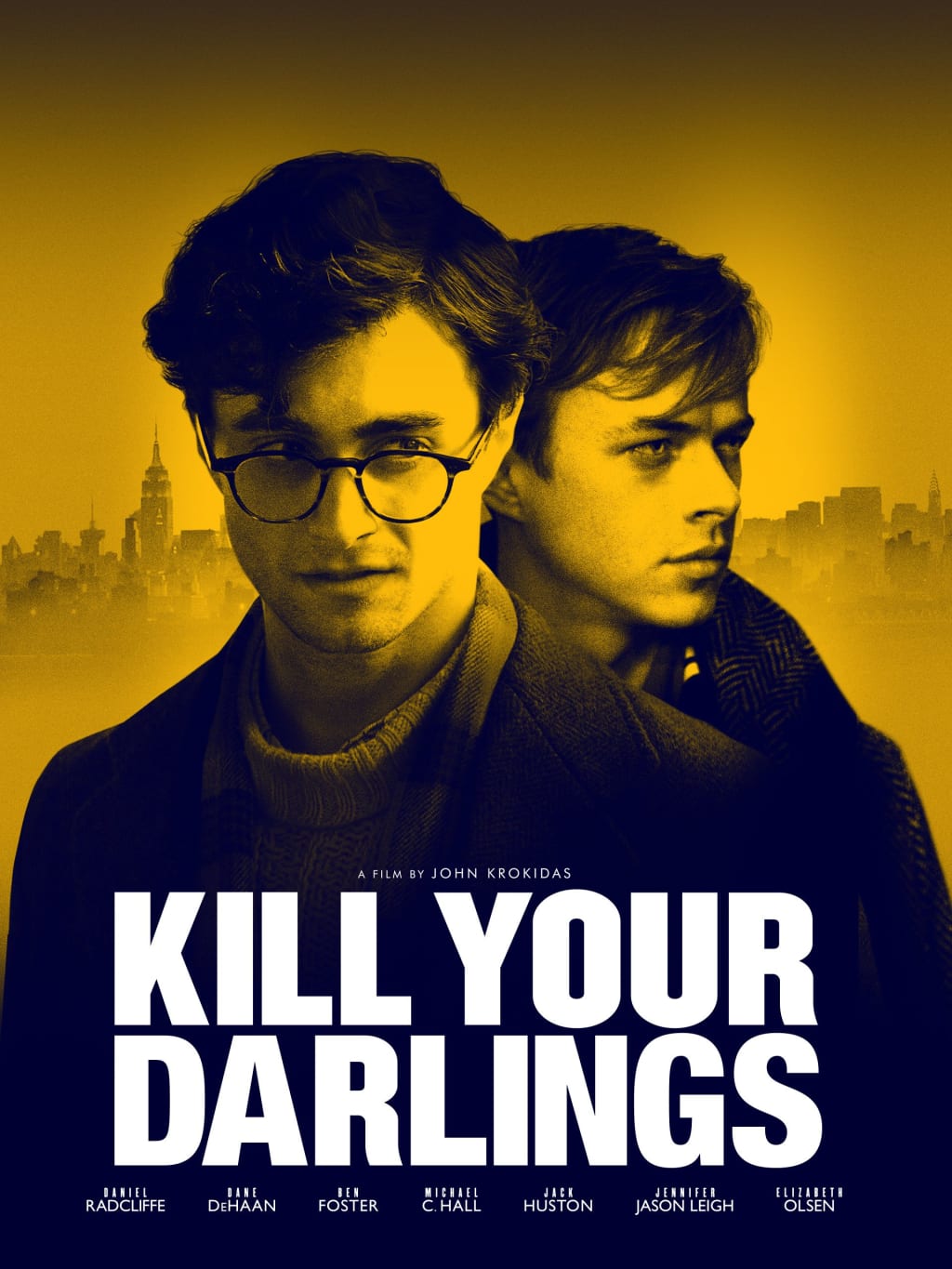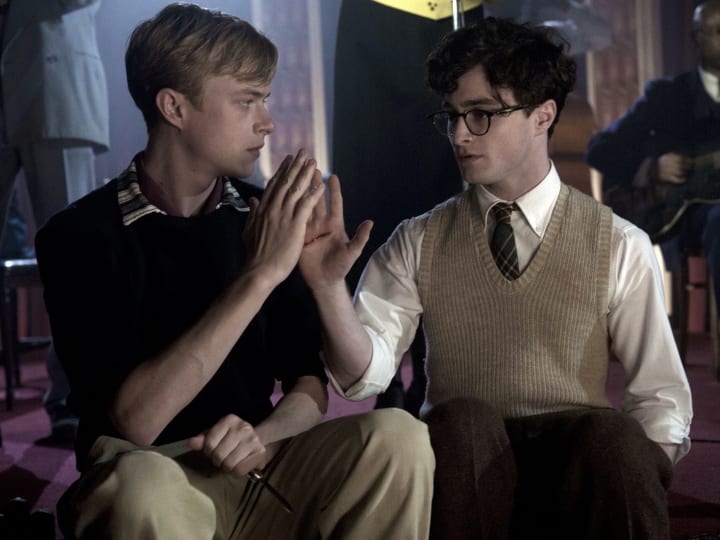'Kill Your Darlings' Film Review
A review of John Krokidas's directorial film debut, a biography about the early days of the Beat Generation, and the deadly infatuations that took place following its formation in the 1940s (NOTE: The following review was originally written and posted by me on Letterboxd).

Background Information
The Beat Generation was a literary movement formed in New York during a post-war era. The movement involved renowned authors such as Jack Kerouac, Allen Ginsberg, William S. Burroughs, and others. Kerouac initially coined the phrase "Beat Generation" to portray themselves as part of an anti-conformist youth movement. The "Beats," as they were called, practiced beliefs such as sexual liberation, romanticism, modernism, etc. Each of them had a reputation for being bohemian and hedonistic once their lifestyles became public knowledge. Some of the most highly-acclaimed classic literary works of all-time depicted their participation in the Beat Generation, such as Kerouac's On the Road and Ginsberg's Howl.
'Kill Your Darlings' Review
I believe one of the most significant reasons as to why Kill Your Darlings has encompassed such diverse reception from audiences—tracing back to its theatrical release in 2013—is that, in order to fully grasp and relish the story that you are being told, you must know at least the outline of the true events which inspired it; otherwise, it may feel convoluted with its number of intricate storylines intertwining all at once. I did not feel strongly about the film in any particular way after my first time watching it, but now I know that it was because I had watched it entirely out of context.
Then, after reading further about the true events, and watching it a second time, my thoughts about it veered from ambivalent to appreciative.
John Krokidas’s film seems to have maintained a close scrutiny on how the true story is depicted, while simultaneously regarding its presence in cinema, sparsely adding fictional elements to persist the dramatic intrigue for its audience. While these attempts are (arguably) successful, some of the fictionalized details portray a distorted reflection of certain characters. This can be said for Lucien Carr (Dane DeHaan), who uses his excessive charisma as a way to allure, and manipulate others—particularly Allen Ginsberg (Daniel Radcliffe) and David Kammerer (Michael C. Hall)—for his own benefit. Of course, with these situations taking place in the early 1940s, it is hard for me to confirm whether or not Carr in his rawest form was actually like this. But either way, if Carr had been alive to watch this film for himself, I have no doubt in my mind that he would be livid with the utter depravation and immorality that is evidenced in his character.

(Left to Right) Dane DeHaan as Lucien Carr; Daniel Radcliffe as Allen Ginsberg
The other characters, however, such as Jack Kerouac (Jack Huston) and William S. Burroughs (Ben Foster) hold distinct and important roles in the story. Carr and Ginsberg are younger than them, but revere them as the kings of a literary realm, and it is infectious; their characters, likable or not, are formatted in such a way that you become viscerally attached to them, only to feel the ultimate betrayal as felt by Ginsberg like secondhand smoke.

(Left to Right) Ben Foster as William S. Burroughs; Daniel Radcliffe as Allen Ginsberg; Dane DeHaan as Lucien Carr; Jack Huston as Jack Kerouac
I, for one, was, and still am, deeply impacted by the endured upheavals as a budding writer myself. Ginsberg’s character arc from an inexperienced freshman at Columbia University, enslaved by his own mindless curiosities and suffering at the hands of constant tribulation, to finally conquering his demons, and using them to elicit masterpieces that stem from deep within him, masterfully shows the undisguised reality of a writer’s brain at work.

Daniel Radcliffe as Allen Ginsberg
Furthermore, the film’s set time period in the 1940s is authenticated with a stunning, anachronistic production design, a score comprised mainly of jazz and swing music, references to beliefs (political, religious, etc.) that were considered orthodox or unorthodox, and the old-fashioned physical appearances and mannerisms of people from back then. Kill Your Darlings does a fine job capturing an atmosphere that most of us weren’t alive to have experienced for ourselves—and, needless to say, the star-studded cast can also be thanked for their variety of mesmerizing performances.
About the Creator
Anna Cheney
Putting my thoughts & feelings into words.






Comments
There are no comments for this story
Be the first to respond and start the conversation.